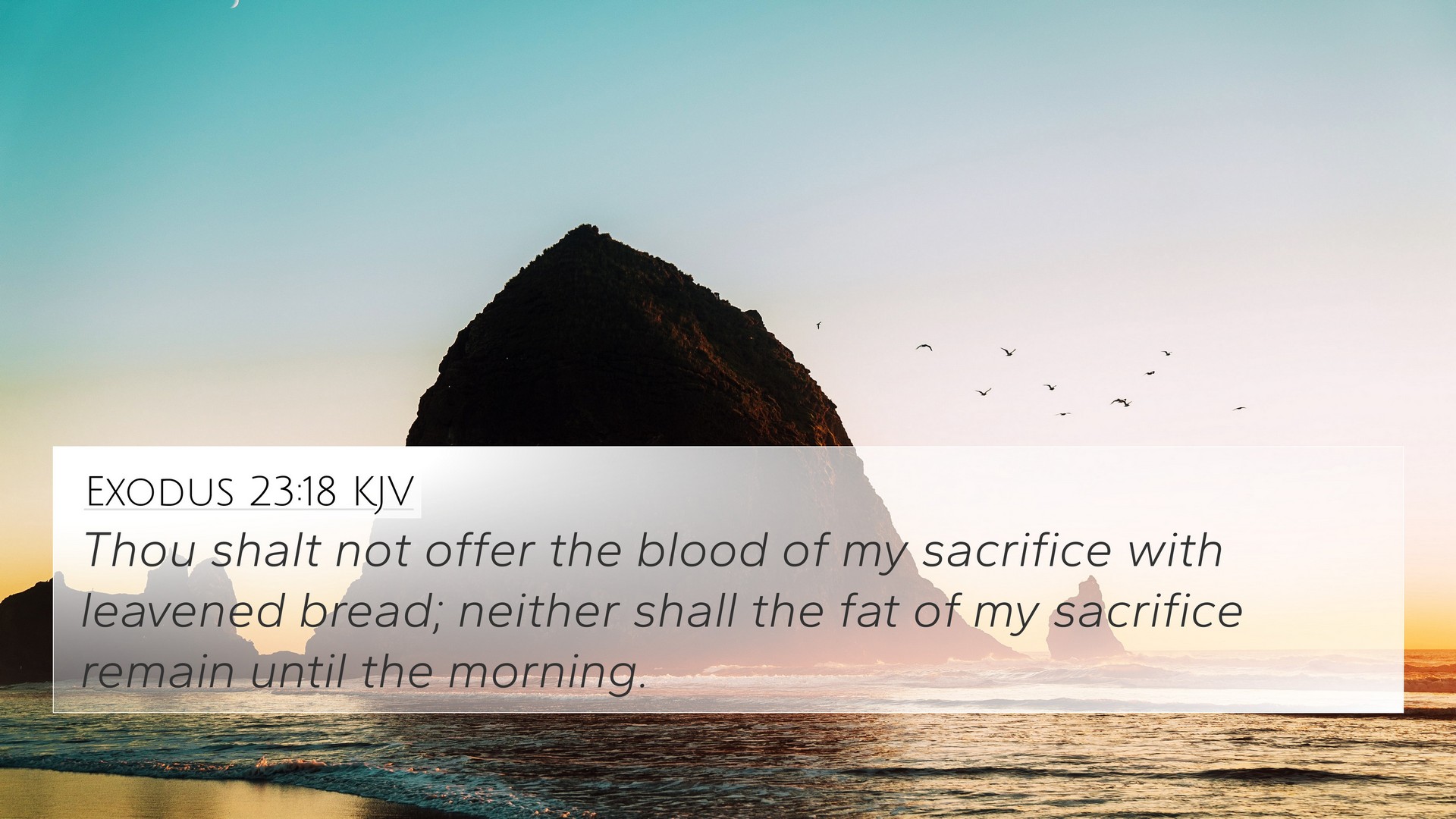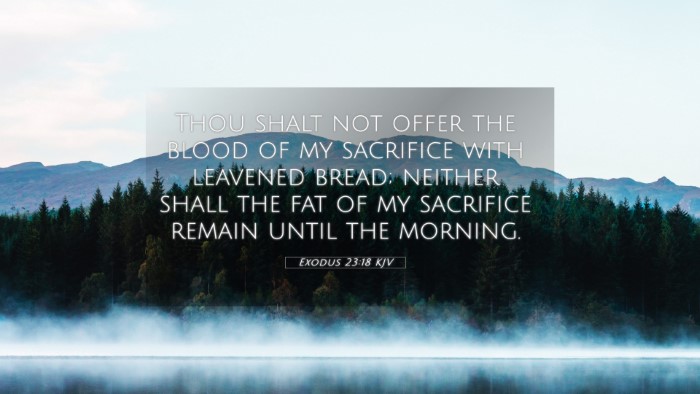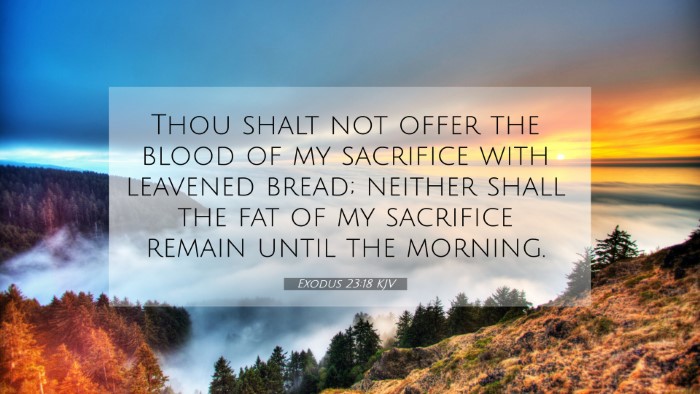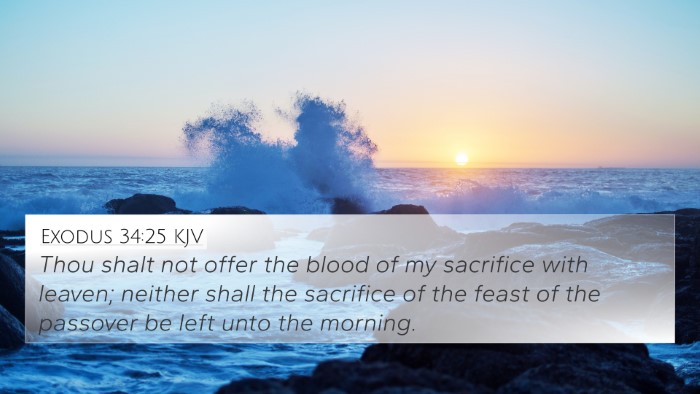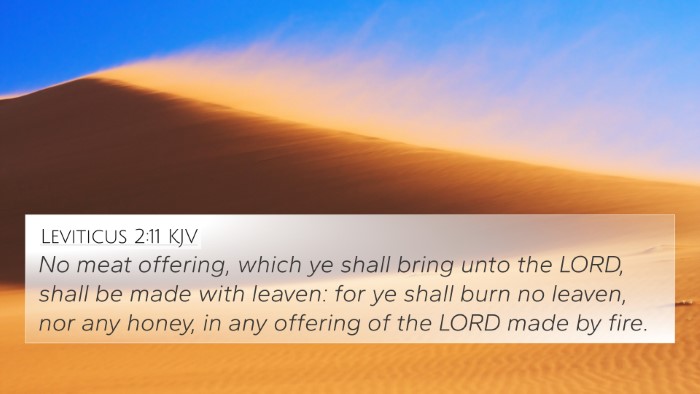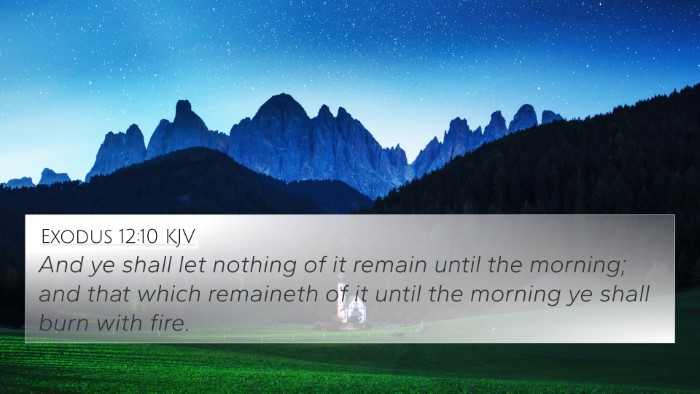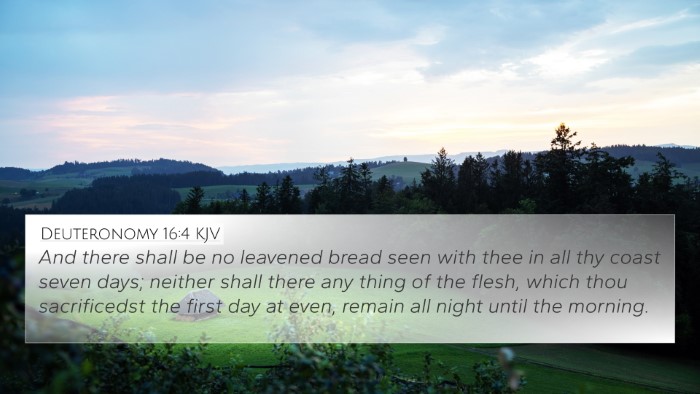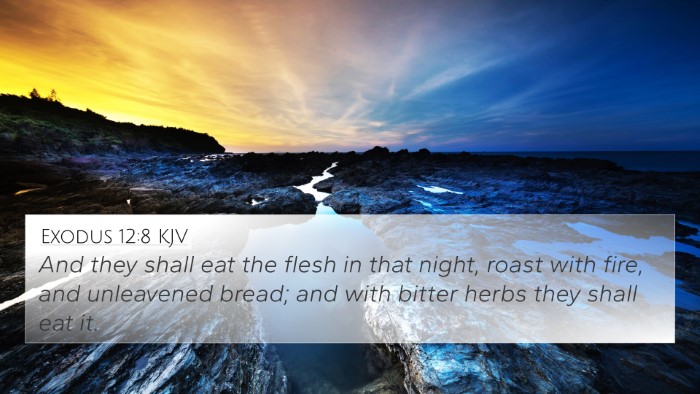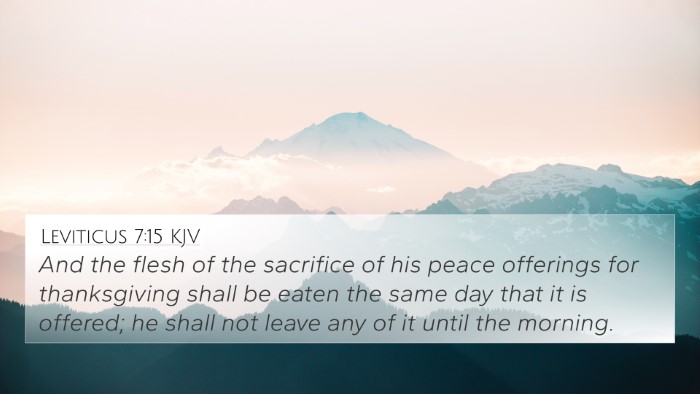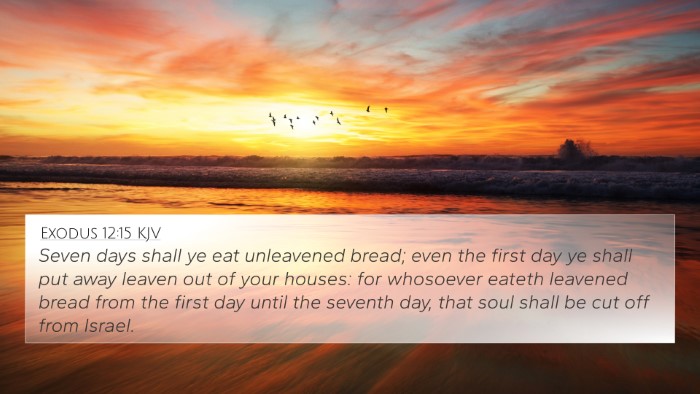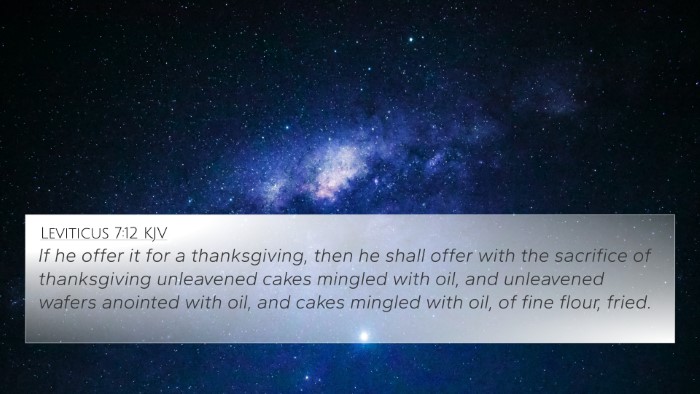Understanding Exodus 23:18
Exodus 23:18 states, "You shall not offer the blood of my sacrifice with leavened bread; nor shall the fat of my sacrifice remain until morning."
This verse is a part of the covenant code provided to the Israelites and addresses the commands regarding offerings and sacrifices. The significance of this verse can be unpacked through various public domain commentaries and thematic Bible verse connections.
Commentary Insights
Insights from Matthew Henry, Albert Barnes, and Adam Clarke illuminate the meaning and implications of this passage:
- Matthew Henry:
Henry emphasizes the significance of approaching God with pure offerings. The prohibition against mixing leaven with the blood of the sacrifice underscores the purity and holiness required in worship. Leaven often symbolizes sin or corruption, and its presence in sacrifices is seen as an affront to God’s righteousness.
- Albert Barnes:
Barnes expands upon the notion that this verse lays out God's regulations for worship and sacrifice. The directive serves as a reminder that sacrifices must be offered in sincerity and without the corruption represented by leaven. He too indicates that the fat, being an important part of the sacrifice, should not be left until morning, which suggests a sense of urgency and honor in completing sacrificial duties.
- Adam Clarke:
Clarke provides further insight on the cultural context of the time, explaining how the references to leaven and the fat of the sacrifice hold deeper connections within Israelite practice. He notes how these elements relate to the Jewish understanding of atonement and the symbolism intertwined in their sacrificial rituals.
Biblical Significance and Thematic Connections
The thematic connections arising from Exodus 23:18 extend into various biblical teachings. The importance of purity in offerings resonates throughout scripture, indicating God's desire for His people to worship Him in truth and integrity.
Relevant Cross-References
- Leviticus 2:11 - "No grain offering that you bring to the LORD shall be made with leaven, for you shall burn no leaven nor any honey as a food offering to the LORD."
- Deuteronomy 16:3 - "You shall eat no leavened bread with it; seven days you shall eat unleavened bread with it, the bread of affliction."
- Matthew 16:6 - "Jesus said to them, 'Watch and beware of the leaven of the Pharisees and Sadducees.'
- 1 Corinthians 5:6-8 - "...cleanse out the old leaven that you may be a new lump, as you really are unleavened."
- Hebrews 9:22 - "Indeed, under the law almost everything is purified with blood, and without the shedding of blood there is no forgiveness of sins."
- John 6:53-54 - "Jesus said to them, 'Truly, truly, I say to you, unless you eat the flesh of the Son of Man and drink his blood, you have no life in you.'
- Romans 12:1 - "I appeal to you therefore, brothers, by the mercies of God, to present your bodies as a living sacrifice, holy and acceptable to God."
Understanding Through Cross-Reference Techniques
For those exploring the depth of this verse, tools for Bible cross-referencing can greatly enhance understanding. By utilizing a Bible concordance or cross-reference guide, one can trace themes of sacrifice, purity, and the rejection of sin across scriptures.
- Tools for Cross-Referencing:
- Bible concordance
- Bible reference resources
- Cross-reference Bible study
- Cross-reference Bible study methods
Conclusion
Exodus 23:18 serves as a reminder of the serious nature of offerings prescribed by God. The connections between biblical verses enhance our understanding and encourage believers to pursue purity in worship. In exploring Exodus 23:18 with the aid of cross-references and biblical themes, one can gain insights into the larger narrative of scripture that communicates God’s design for holiness and the proper approach to worship.
